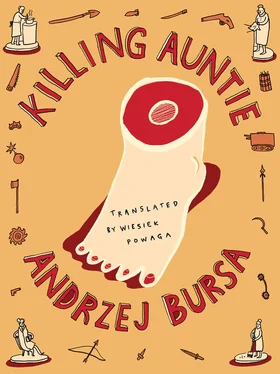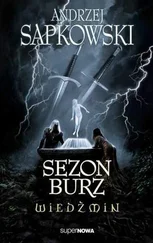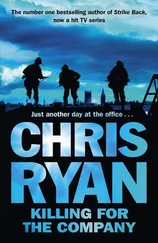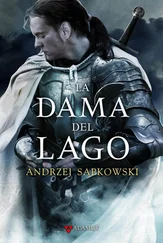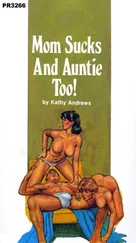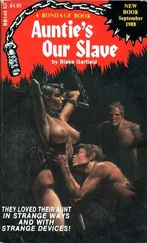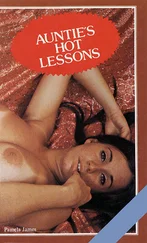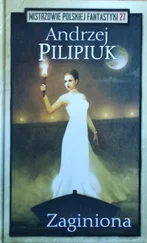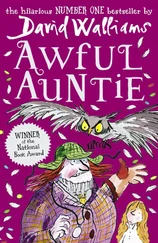At long last all the addresses were ready. I brought a piece of the body from the bathroom and started wrapping it up. Suddenly I stopped. I was overcome by a wave of fatigue. And with it — fear. I was familiar with this condition. Whenever I got absorbed in some light task — heavy manual labor was out of the question — after some time I began to feel a rising anxiety. It was a vague sense of terror, dejection and depression, which had only been temporarily tricked by my activity. Today, the anxiety was more tangible and easier to overcome. If before I was simply unable to find a logical explanation of why I was engaged in reading a particular book or puzzling out a certain test, now finding a justification for my action was straightforward and irresistible. The battle with the corpse had liberated me from those unmanly histrionics and feebleness. It was the first difficult and dangerous task I had ever faced. Although the panic attacks still happened, they had a real cause. I learned to overcome them through cold rationalization of my current situation, from which followed the choice of appropriate actions. This time, though, the fear seemed to be better grounded than usual. For as soon as someone would unpack my parcel in some remote little town, another person somewhere else would pin a little flag on the dot denoting our town on his map. The more parcels bearing stamps of my local post office that were opened in various corners of the country, the more leads for our policemen to conclude that the murder took place here rather than anywhere else. At the same time, I was aware that the day I should inform the authorities of Auntie’s disappearance was getting inexorably near. The date I’d give them would have to coincide with the time of death, which would be established by forensic analysis of the remains. And that would be suspicious, for sure.
It was possible — I reasoned with myself — that my thinking was full of holes due to my lack of experience. Nevertheless it was undeniable that by sending the remains by post I was giving the detectives a certain advantage. I was disappointed. All that nice, calming work would be a waste of time. There was nothing to do but to tear up all the fictitious addresses, the inventing of which had been such a pleasant distraction; pleasant not only because it was fun but also because I believed it to be useful. Once again it crossed my mind that the annihilation of the corpse was harder than might be generally believed, that the struggle was tough and the adversary brave. So — what to do? I thought of the river. I had already been to check it out. The banks were frozen, so a parcel would have to be thrown in away from the ice. But I wouldn’t dare to drop it from the bridge, even in the middle of the night. Unless I packed it all away in a sack … A sack, I needed to buy a sack. Come on — I was getting annoyed with myself — where does one buy a sack? I went in my mind through all the shops I knew, yet I could not remember a single one where they might be selling sacks. I gave up. I was sure I’d find one. But then, who needs a sack? I’d take a few parcels and throw them into the river outside of town. I decided to go there the next day. Confidently, I wrapped the piece lying on the table and put it in the box. Then started slowly tearing up the labels with fictitious addresses.
Still, the moment I tore up the first paper, the doubts returned. I took the parcel out to the bathroom and stretched myself out on the bed. My experience with the corpse had taught me to avoid harried, unpremeditated actions. I thought that by giving the authorities the advantage in sending the parcels by post I could immediately turn this advantage … to my advantage. OK, tomorrow morning, at an anonymous post office, my parcel would arrive bearing the postmark of our town. But what if another post office receives a parcel bearing a postmark of another town? And the day after tomorrow another parcel with another piece of the corpse would be stamped in another town altogether? Even if they eventually came to the conclusion that there’s one murderer, how would they decide his true address? Rather, they would assume that mailing the parcels from different towns was a deliberate ploy. How could they tell that the murderer would start with his hometown? Such a perfidious criminal would know to steer clear of any post office near his permanent address. Who knows, maybe it would be a dot without a flag that would come to be the focus of the investigation? I went on honing my plan. I rejected the idea of visiting several towns in a row. That would be too expensive. Moreover, what excuse would I give at the university for absenting myself from the lectures? Still, the advantage, once relinquished to the enemy, had to be immediately turned around. Tomorrow I would take three parcels and mail them from the main post office in a big town two hours away by train. That should be a big enough stick in the spokes of the investigation. The rest of the body I would dispose of here by different methods.
From the pile of addresses on the table I picked out those that struck me as the funniest and returned to the packing. The overall weight of the parcels was one hundred and twenty pounds. I took them out to the bathroom and burned the papers with addresses.
TRAVELING HAD ALWAYS HELD A CERTAIN ATTRACTION FOR ME. In my modest experience I had traveled little and every trip, even the shortest one, was for me a source of amusement and an adventure. In a different town I felt a bit like a foreigner. It was still before midday when I had all the parcels posted and so I went for a stroll around the town. Luckily, it was warm and sunny. Mailing the parcels was a big step forward. Pleased with the progress, I decided to spend the rest of my time in town on small pleasures. When I got tired walking the streets I stepped into a café. I treated myself to a big coffee and two cakes. I had my lunch in a good restaurant, choosing the menu with the sedulous care of a gourmet. After lunch I felt a little tired. My return train was in the evening. Wandering around, I came across a cinema. They were showing a movie it was impossible to get tickets for in my town, but here I bought one without trouble.
Movies make me feel vulnerable and leaving a cinema is almost always a nasty shock. The exotic glamour of the strange town was shattered, showing all its fragility. The station was merely dirty and noisy. Many times I have promised myself to go to the cinema every day, to spend much of my time — I was afraid to say: life — in lethargy. I never fulfilled my promise.
The compartment was not overcrowded. Opposite me sat a girl, reading a book. She was pretty. I was observing her with pleasure, the light auburn lock of hair on her forehead, a small nose, her dark, resolute eyebrows. She had delicate, shapely hands. With sadness I thought that soon she would leave the compartment and I’d stay behind, alone with sleeping workers, or maybe she’d get off the train with me in our town, but then we’d lose each other in the crowd. I would be left alone. Almost with gratitude I thought about my corpse, the struggle with whom somehow filled my loneliness.
The train was moving at a sleepy pace. We were passing the scattered lights of villages and small towns. The lightbulb hanging from the ceiling gave faint, murky light. How can she read? — I thought about the girl. And without any premeditated plan, I said:
“You will damage your eyes.”
The girl quickly raised her head and frowned lightly. Then she smiled and put away her book.
“Thank you,” she smiled again. “I’m used to it, they always tell me off for reading in the dark.”
“And quite rightly too,” I replied solemnly.
We started to chat. At first I was afraid that our light, casual conversation would suddenly break off after some trivial remark, that after a few stops, before we reached our town we would fall silent, running out of things to say. But as we spoke the risk of that happening faded away. We slowly relaxed into our chat and the moments of silence that fell from time to time between sentences did not separate us. We were silent together. At some point I felt the girl’s hand on my knee. I appreciated the gesture but still didn’t dare touch her hand.
Читать дальше
